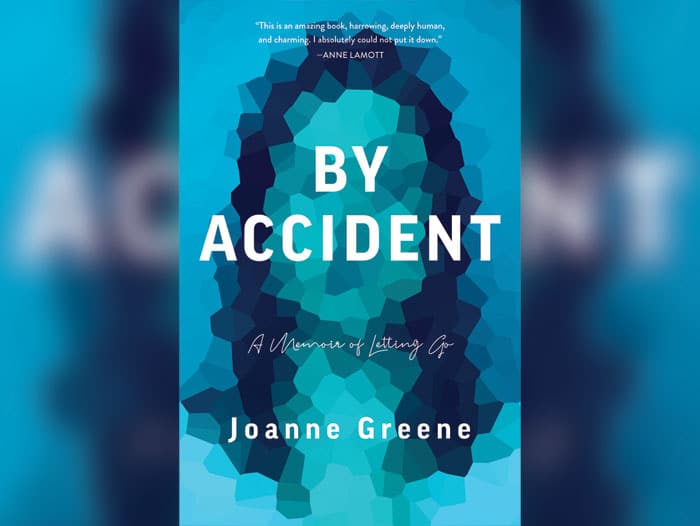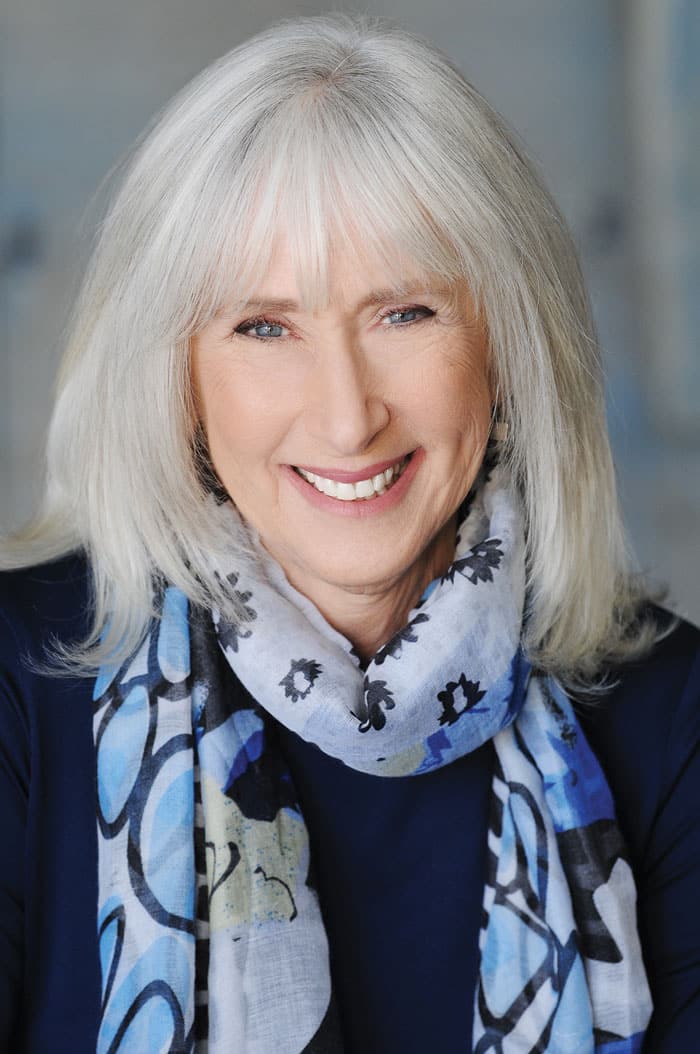
As Joanne Greene crossed the street on October 3, 2012, she heard a sudden and loud sound. She thought it was an explosion, but then she realized she was airborne and thrown on the hood of a car. On the street, right in front of her synagogue and her local JCC, where she worked, she lay on the ground, in agonizing pain, unable to move, surrounded by shocked onlookers.

What laid ahead for Joanne was a long road to recovery, one that was physical, mental and spiritual and resulted in her letting go of control and finding a new way to live, which she documented in her book, “By Accident: A Memoir of Letting Go.”
A former radio show host in San Francisco, Greene spent 11 years as the director of the Center for Jewish Peoplehood at the Marin JCC. At the beginning of the book, she is working at the JCC and her colleague, Janet, witnesses her being hit.
Greene writes, reflectively, in the opening chapter: “Being hit by a car is not my first blow — although it’s probably the most literal — and it won’t be my last. But it will be a catalyst for me, a sudden graphic stop to my constantly in-motion existence, my need to produce and achieve to feel worthy of love, my need to control everything because I’ve believed that it would make me safer. It will be the test that finally teaches me that my needs are masks, and that control is an illusion.”
“By Accident” details Greene’s recovery, which involves arduous physical therapy to heal her four pelvic fractures and other injuries. Throughout the entire ordeal, she relies on her loving husband, Fred, along with family members and friends, something she isn’t used to.
She wrote the book to help readers who may also be struggling. “After a tumultuous period in my life which I not only survived but turned into a major growth opportunity, I felt I had a story worth sharing with life lessons that might benefit others,” said Greene. “Also, having lost my parents and both siblings, I wanted to capture stories for future generations.”
Greene’s Judaism plays a large part in her recovery; she practices gratitude, especially when things get difficult, and when she hears the Misha Berach, the prayer for healing, she writes that it’s “like velvet caressing my arms.”
She said, “Judaism teaches us to choose life, to be grateful for our blessings and to have faith in forces much greater than ourselves. I’m a part of a supportive Jewish community that showed up for me in major ways.”
At one point, Greene goes to the mikvah with close friends and family members as a symbolic move and has a spiritually uplifting experience.
“This ancient ritual purification — used to mark many passages in Judaism — can mark the progress of my healing,” she writes. “[In the mikvah], time feels suspended. My body tingles as I submerge in the water, again and again. There’s power to this ancient practice. I feel spiritually cleansed, like I’m being taken on a sacred journey of healing.”
Though Greene went back to work part-time at the JCC after her accident, she decided to retire during the pandemic and write her book. These days, life is slower and more relaxed; she spends time reading, doing yoga, hiking and being with her family.
“I’m not as hard on myself, cutting myself slack and sometimes even napping mid-afternoon,” she said. “I see my children and grandchildren, all of whom live in L.A., as often as possible.”
Through her journey, Greene learned what she believes will be helpful to others: try not to think about how long it’s going to take to recover.
Through her journey, Greene learned what she believes will be helpful to others: try not to think about how long it’s going to take to recover. Instead, focus on the moment. Ask others for help – and receive it. Stop judging the way people go about things, because we are all different and most of us are trying to do our best.
It’s also important to have a loving mantra.
“I hope people learn that what we tell ourselves matters greatly,” she said. “Questioning, for instance, ‘who do you think you are?’ doesn’t serve you. Alternately, saying ‘I can do this’ repeatedly, does. Even if you don’t believe your mantra initially, saying it to yourself often enough makes the message sink in.”
If nothing else works, go back to the basics and be grateful. “Gratitude is the best attitude to default to when feeling lousy,” she said. “Counting one’s blessings will always improve your state of mind.”
Joanne Greene will be speaking with Lacey Rose, Senior Managing Editor for The Hollywood Reporter, at Zibby’s Bookshop in Santa Monica on September 7 at 6 p.m.























 More news and opinions than at a Shabbat dinner, right in your inbox.
More news and opinions than at a Shabbat dinner, right in your inbox.